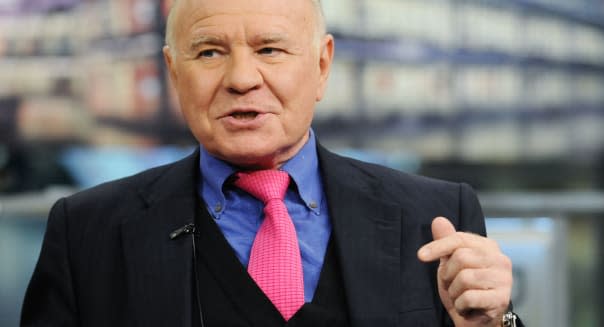Don't Pay Any Mind to Financial News Gurus

By Daniel Solin
It has long been my view that much of what passes for "financial news" is little more than an infomercial for the securities industry. It also serves to feed the egos of self-confident pundits, who feed viewers a daily grist of musings that often include predictions about the direction of the markets, the possibility of inflation and whether interest rates are likely to rise or fall. When they are correct, which is likely around half of the time, these pundits are proclaimed gurus. When they are wrong, they have no remorse or accountability.
Some of their pronouncements are so silly you wonder how they get airtime. Art Cashin is a frequent contributor to CNBC. He recently observed that "caution is in the air." This came less than a month after his insight that the Standard & Poor's 500 index (^GPSC) could "taste 1,950 points." When Cashin isn't personalizing the collective mood of millions of investors all over the world, a formidable task you may think would be a full-time job, he works as director of floor operations at the New York Stock Exchange for UBS (UBS).
Cashin's musings aren't harmless. Presumably, some viewers believe he has a special insight into the market and that his views merit some consideration.
But the fiction that Cashin can predict the unpredictable pales in comparison to the harm done to investors by the single biggest myth perpetuated by the financial media: The market hates uncertainty. How many times have you heard that phrase?
As recently as June 12, Jim Cramer stated that "if the market hates anything, it's uncertainty." Cramer, concerned about the fighting in Iraq, recommended that, for now, investors sit on the sidelines.
%VIRTUAL-WSSCourseInline-1049%When markets tank, even the mainstream press attributes the cause to "uncertainty." A headline on a Sept. 20 CNN Money story stated: "Dow down nearly 200 points as uncertainty returns."
The problem with following advice based on "uncertainty" is that it causes investors to act emotionally and get in or out of the market based on the views of financial pundits. In March of 2009, the level of uncertainty was very high. Things looked pretty dim. Investors were rocked by record losses. The financial stability of our banking system was very much in doubt. The Madoff scandal eroded confidence in the integrity of the financial markets.
If you had listened to the pundits and remained on the sidelines, you missed a huge and sustained rally. From March 2009 to May 2014, the Russell 2000 index was up 213.33 percent. Clearly, the market didn't "hate" this uncertainty.
Again, there is much uncertainty in the market. An active debate is underway about whether the current bull market is likely to continue or whether a crash is imminent. Wharton School Professor of Finance Jeremy Siegel recently said told CNBC he "would not be surprised" to see the Dow Jones Industrial Average climb to over 18,000 by year-end. Marc Faber, the editor and publisher of the Gloom, Boom & Doom Report, couldn't disagree more. In April, he said on CNBC, "I think it's very likely that we're seeing, in the next 12 months, an '87 type of crash. And I suspect it will be even worse."
Investors are caught in the middle of these two conflicting views. What are they supposed to do?
Here's an easy-to-implement resolution: Ignore the financial news and the musings of the pundits. Their predictions about the future of the market are no more reliable than yours. The best indication of the status of the market is the price set by millions of traders every day. If it were "obvious" to them that the market was about to crash, stock prices would decline.
If they thought the market was going to continue its bull run, prices would increase. You can assume the current price of stocks and bonds reflects all available information. And the prices you are looking at today reflect the collective judgment of investors worldwide. They are likely to be fair.
Instead of trying to figure out which pundit is right or wrong, focus on factors you can control, such as your asset allocation, costs, fees and tax efficiency. Your decision to buy or sell stocks or bonds, once you are comfortable with your asset allocation, should be part of a regular rebalancing strategy intended to be sure your portfolio isn't too risky or too conservative for your needs.
The fear mongering over market uncertainty is designed to embellish the credentials of those making predictions. It shouldn't be used as part of an intelligent, responsible investing strategy.
Dan Solin is the director of investor advocacy for the BAM Alliance and a wealth adviser with Buckingham. He is a New York Times best-selling author of the Smartest series of books. His latest book, "The Smartest Sales Book You'll Ever Read," has just been published.
